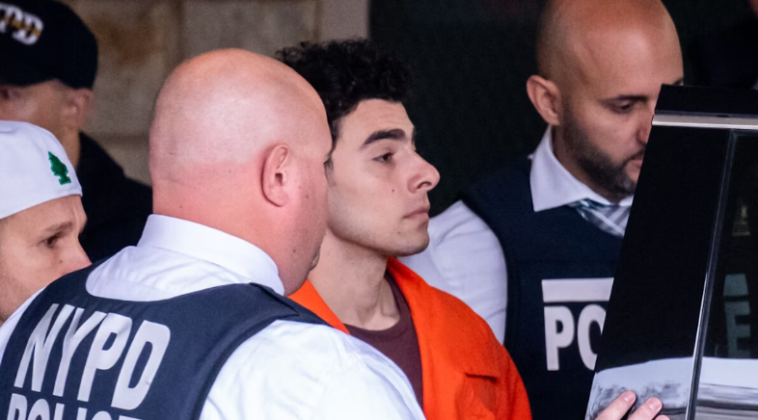Luigi Mangione, the suspect accused of murdering UnitedHealthcare CEO Brian Thompson in a high-profile assassination, has waived his right to extradition and is now in the custody of the New York Police Department. The 26-year-old, apprehended in Pennsylvania after a five-day manhunt, faces charges including first-degree murder in furtherance of terrorism and second-degree murder as an act of terrorism.
The Case Against Mangione
Mangione is accused of orchestrating the targeted killing of Brian Thompson on December 4 in Midtown Manhattan. According to law enforcement, Mangione ambushed Thompson while he was en route to an investor conference, shooting him in broad daylight. Investigators claim the act was meticulously planned, citing evidence recovered during Mangione’s arrest, including a notebook that outlined his intent to target a healthcare executive.
Authorities have linked Mangione’s motives to anti-corporate sentiments, with the suspect allegedly expressing grievances about the healthcare industry in his writings. The case has drawn significant public attention, partly due to the unusual circumstances of the crime and the suspect’s purported ideology.
Arrest and Extradition
Following the murder, Mangione fled the scene, sparking a multi-state manhunt. He was arrested on December 9 in Altoona, Pennsylvania, where he initially resisted extradition. However, during a court appearance on December 19, Mangione waived his right to contest the transfer and was promptly handed over to New York authorities.
Legal and Public Reactions
Mangione’s actions and arrest have polarized public opinion. While some see him as a dangerous criminal who carried out a heinous act, others have shown sympathy for his alleged anti-corporate motivations, with reports of supporters sending him letters and gifts while in custody. Law enforcement officials have condemned this behavior, warning against glorifying violent acts.
The charges Mangione faces are severe, with prosecutors likely to seek the maximum penalty. If convicted, he could face life imprisonment without the possibility of parole. His arraignment in Manhattan is scheduled for later today, where he will formally respond to the charges against him.
Broader Implications
The case highlights growing concerns about politically or ideologically motivated violence in the U.S. Experts have pointed to Mangione’s writings as an example of how economic frustrations and societal tensions can escalate into acts of targeted violence. The healthcare sector, in particular, has faced increased scrutiny and criticism, which authorities believe may have contributed to Mangione’s alleged motives.
As the legal process unfolds, the case is expected to draw continued attention, both for its implications on corporate-targeted violence and the broader societal issues it reflects. For now, Mangione’s transfer to New York marks a pivotal step in bringing the high-profile case closer to resolution.


